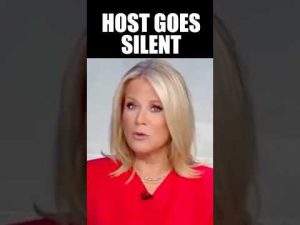### The Department of Justice: Friend or Foe?
In a recent confirmation hearing that felt more like a stormy showdown, the spotlight landed on the Department of Justice, or DOJ, and its increasingly controversial role in America’s political landscape. The exchange was electric, filled with accusations, revelations, and a hint of drama straight out of a political thriller. As questions flew and tensions simmered, it became clear that the DOJ is at the center of a growing debate over partisanship, favoritism, and the fine line between justice and political influence.
The show started when a senator pointed out a curious connection between President Trump’s social media activity and the DOJ’s prosecutorial decisions. It seems that shortly after the President asked online about the prosecution of former FBI Director James Comey, the DOJ sprang into action with an indictment. This pointed to a possible cozy relationship between the White House and the DOJ, raising eyebrows and causing some to wonder if the Department had become little more than a legal wing of the Trump administration. With the President’s tweet acting as a call to arms, the senator implied the DOJ was taking orders when it should have been serving justice impartially.
Then came the juicy allegations about Tom Holman, the new “border czar.” Apparently, he was caught on video accepting a bag stuffed with $50,000 in cash from undercover FBI agents. Now, rumors have it that the DOJ decided to shut down the bribery investigation against him because, like an elusive magician, it vanished without a trace. Critics are baffled, saying that if a government official can waltz away from a bribery accusation like a contestant on a reality show, something is terribly wrong. It appears that the DOJ isn’t just navigating a storm; it’s sailing headlong into uncharted waters.
Meanwhile, the discussions about the January 6th insurrection were equally dramatic. Over 1,200 individuals have faced legal repercussions related to the events of that fateful day, but many of them have received a pardon courtesy of President Trump. To add icing to the cake, there were whispers about a possible compensation fund for those rioters, bringing to mind questions about fairness and equality under the law. The DOJ’s representative, however, was quick to dodge that hot potato, offering nothing but a promise to “look into it.” It’s hardly surprising that many Americans feel unsettled when it seems like their government is entertaining the idea of compensating individuals convicted for their roles in the chaos.
Antitrust issues added yet another layer of complexity to the proceedings. The DOJ recently pummeled two tech companies trying to merge, only to flip the script after a lobbyist interjected. Critics are raising red flags, questioning whether the DOJ’s decisions are being influenced more by well-connected insiders rather than by what serves the public interest. With tales of lobbyists pulling strings, it becomes challenging for many to believe that the DOJ is safeguarding those it’s meant to protect—the everyday American.
As the dust settled, one thing emerged crystal clear: the perception of a double standard within the DOJ is gaining traction. Lines between politics and justice seem blurred, and many citizens are becoming increasingly wary of how the scales of justice are being balanced. As this tale unfolds, with all its twists and turns, the American public is left pondering the fundamental question: Is the DOJ serving justice for all, or just the favored few? With turbulent waters ahead, Americans keenly await the answers. In the unpredictable world of politics, one thing’s for sure: the drama is far from over.







